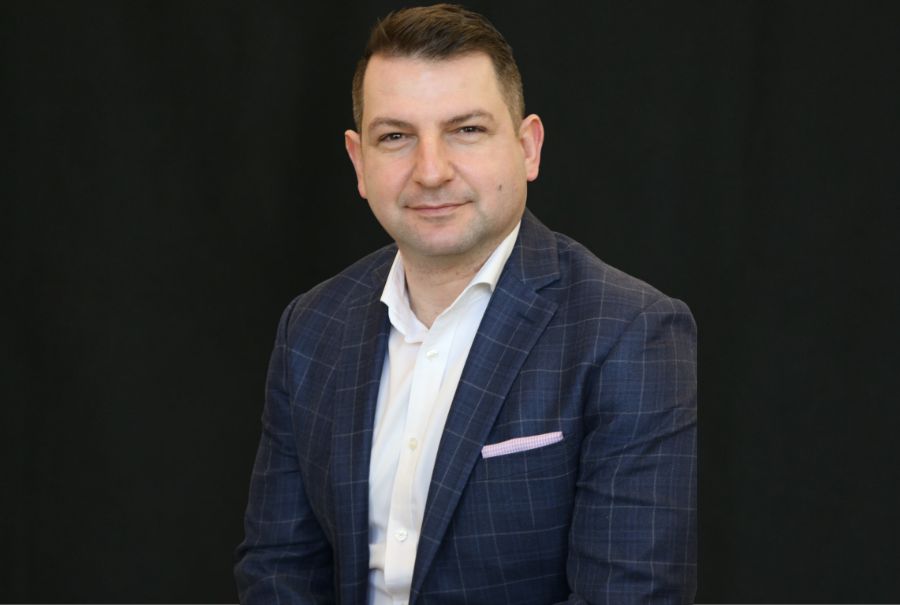Members of TeamUHN redeployed to the Rekai Centres (long-term care facilities in downtown Toronto) relied on the Critical Care Learning platform to quickly bring their skills up-to-speed during wave one of the pandemic
When the first wave of the COVID-19 pandemic hit earlier this year, hospitals in the Greater Toronto Area were faced with the imminent possibility of urgently redeploying healthcare practitioners in a variety of critical care environments. In response to this need, dedicated professionals throughout UHN and The Michener Institute of Education at UHN collaborated with subject matter experts across Toronto to launch an online learning platform in just 10 days. The COVID Care Learning platform provides science based information on the treatment of COVID patients.
When the site was launched on April 1, 2020, more than 2,000 healthcare workers signed up to access various resources in a matter of days. But, even more remarkable is the fact that 10 months later, the educational platform is being used by 192 hospitals throughout Ontario, attracting more than 11,500 learners.
Under the leadership of Maria Tassone, Senior Director, School of Continuing Education, the COVID Care Learning website was initially developed to prepare healthcare providers being redeployed to care for patients in acute and critical care settings, in anticipation of a surge in COVID cases back in April. As the pandemic evolved, the platform expanded to a provincial reach and quickly mobilized to add long-term care homes as they became a priority. A breadth of modules were developed in collaboration with leading education specialists to train individuals caring for residents in long-term care homes.
Since its inception, the site has expanded throughout Ontario to provide educational resources for healthcare providers, students and trainees of all backgrounds to quickly develop new skills to safely deliver care in unfamiliar environments. As of December, the COVID Care Learning program supports 16 professions, nine long-term care streams and six content areas (e.g. wellness and resilience, bioethics) that provide resources to all disciplines and sectors. Learners now represent 50 professions in all 14 of Ontario’s Local Health Integration Networks.
Due to its widespread success and uptake across the province, the Ontario Ministry of Health and Public Health Ontario approached Michener over the summer to help onboard up to 600 science graduates hired by Ontario labs to support the heavy influx of COVID-19 testing.
“We were able to leverage the expertise from Michener’s Medical Laboratory Technology program and our experience of creating the COVID Care Learning site to prepare people to function as a support to medical laboratory technologists in core labs,” says Mohammad Salhia, Director, Continuing Education and UHN International Centre for Education. “We built a platform with a series of online learning modules, and a companion onsite lab component to upskill and support onboarding of these science grads.”
Michener and UHN have also been working in partnership with the Ontario government to address the pandemic crisis in the long-term care sector. A new program has been developed in collaboration with Baycrest and the Ontario Centres for Learning, Research and Innovation in Long-Term Care, in anticipation of a shortage of health human resources as the province entered the second wave. The program trains Resident Support Aides (RSA) for deployment to long-term care homes.
“We quickly pivoted to create another learning platform specific to this provincial project. The RSA is an entry level role into healthcare for those who are interested in pursuing a new career path and have a desire to help our most vulnerable population,” says Karen Chaiton, Director, Business Operations, The Michener Institute of Education at UHN.
RSAs assist staff in long-term care homes with routine tasks such as directing visitors, and assisting with technology and activities. They also provide residents support in connecting with family, and daily interactions. “This is an opportunity for individuals who have faced uncertainty in their employment during this time to utilize their skills in a different capacity,” adds Karen.
As a one-stop-shop for supporting the continuum of care through education, these unique developments will certainly not be the last to come. Michener is grateful for the support of donors and other granting organizations as they continue to seek funding to carry out these projects and expand their modules, which have been making a positive impact. There is tremendous potential for this critical education platform to continue to evolve as the country prepares for a vaccine, and UHN and Michener will be ready with innovative education solutions.


